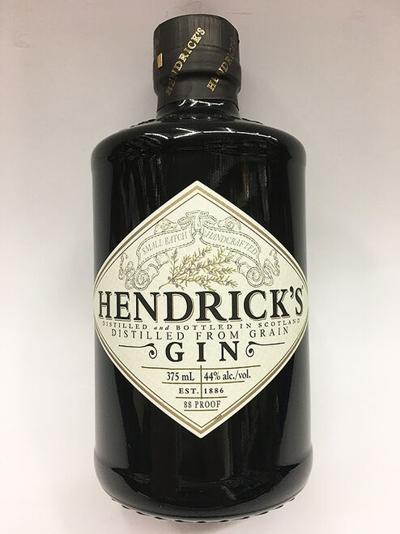I became a Wiki editor a couple of weeks ago. Anyone can edit Wikipedia provided they follow the rules. One should not use primary sources. Instead, secondary sources are preferred. Translated, this means do not use sources that have not been widely read and reported for a long time and DO NOT use recent sources if they are not in the mainstream media.
Unfortunately, this means that published peer-reviewed medical journal articles will sometimes NOT be allowed, which means you, the reader, will likely get inaccurate or ONLY politically correct information.
This also means that someone's Wikipedia page could contain unflattering and untrue information; in someone's opinion it could be downright defamatory, and there is not a darn thing that can be done to correct this.
Allow me to illustrate a case in point. Dr. Pierre Kory has served as the Chief of Critical Care Medicine at a University Medical Center. This fact is accurately reported on his Wikipedia page. In addition, he published a book on Ultrasound and won a British Award for this. Again, this is also accurately portrayed on his page.
He testified at the US Senate about Ivermectin, and this is where the incorrect information gets written. The Wikipedia page reports,
“During his (Pierre Kory’s) testimony in December 2020, Kory erroneously claimed that the antiparasitic medication ivermectin was a ‘wonder drug’ with ‘miraculous effectiveness’ against COVID-19.[1]”
In support, Wikipedia cites an AP Fact Check article by a journalist, Ms. Beatrice Dupuy, who is not a medical professional to my knowledge. She has never served as a medical director of Critical Care or Pulmonary Medicine. I believe she has written for StarTribune and TeenVogue Magazine in the past.
However, she is somehow sufficiently competent to call Dr. Kory's testimony “false.”
TrialSite News published an article debunking Beatrice Dupuy's "fact check," and this is what they wrote about her errors in the argument concerning Ivermectin and Dr. Kory:
“The AP, via author Beatrice Dupuy, indulges in both a straw-man argument and bait-and-switch tactic in its key finding; the former by asking whether Ivermectin is ‘miraculous’ (while a doctor may have used such language, common sense dictates that an inquiry more relevant to the public health would be whether ivermectin is ‘effective’), and the later by offering an ‘Assessment’ that answers a different question than the one in the ‘Claim.’
Quoting AP, ‘CLAIM: The antiparasitic drug Ivermectin ‘has a miraculous effectiveness that obliterates’ the transmission of COVID-19 and will prevent people from getting sick — AP’S ASSESSMENT: False. There’s no evidence Ivermectin has been proven a safe or effective treatment against COVID-19.’
The claim is about Ivermectin as a prophylactic to prevent getting COVID-19 illness, but the assessment’s language states that it is not an effective ‘treatment against COVID-19.’ Since prophylactic (prevention) is for the well, and treatment is for the sick, confusing these medical uses appears to be sloppy journalism or worse.”
What is truly troubling is that the Wikipedia editor considers this type of “fact check” by a non-physician a reliable source. What is even more troubling is that Wikipedia DOES NOT CONSIDER the American Journal of Therapeutics a reliable source. Their editors REFUSED to allow even the mention of Dr. Kory's recent publication or Dr. Tess Lawrie's recent publication in the same journal.
When I first saw Dr. Kory's Wiki page, it read as follows:
“During his (Pierre Kory’s) testimony in December 2020, Kory erroneously claimed that the antiparasitic medication ivermectin was a ‘wonder drug’ with ‘miraculous effectiveness’ against COVID-19.[1]”
Since this was written in December 2020, MUCH MORE EVIDENCE has been published beyond Ms. Dupuy’s disputed fact check issued by the AP on December 11, 2020. We now have over 61 studies involving 19,432 patients via 578 authors.
That is more than a mountain of evidence. It is more like an encyclopedia of data comprising volumes and volumes of evidence. Included are 32 randomized controlled trials. Because many cancer drugs are FDA approved without a SINGLE randomized controlled trial, and many drugs are approved with less than 3,000 patients studied, the double standard is laughable.
Therefore, I changed “erroneous” to “controversial,” which is a more accurate adjective. I also added the newly published peer-reviewed medical journal studies by Dr. Kory and Dr. Lawrie. Finally, my edit contained these additional two sentences:
“However, in May of 2021, Dr. Kory published a narrative review in the peer-reviewed American Journal of Therapeutics entitled, "Review of the Emerging Evidence Demonstrating the Efficacy of Ivermectin in the Prophylaxis and Treatment of COVID-19."[2] Subsequently, on June 17, 2021 Dr. Tess Lawrie published an extensive meta-analysis in the same peer-reviewed journal involving 24 randomized controlled trials and concluded that based upon moderate certainty evidence, Ivermectin was associated with a 62% reduction in COVID-19 mortality.[3]"
Following these changes, the senior editor “reverted” my edits, which is a polite way of saying he undid them. This senior editor describes himself as a retired computer scientist, and there is no indication of any medical training. Let us refer to him ASOP.
I received ASOP’s explanation, attached to my reversion, that the American Journal of Therapeutics was considered NOT RELIABLE, and he considered this medical journal a FRINGE source.
At first, I thought perhaps this was an isolated incident at Wikipedia. Then, I checked another page, the one on Ivermectin.
The Ivermectin Wiki page stated, “claims that Ivermectin is beneficial for treating and preventing COVID-19 are not backed by sound evidence.” Once again, they referenced a “fact check” page. Once again, I felt it was necessary to update their information.
I used my ability as a Wikipedia editor to update this article and add the Kory and Lawrie studies recently published in the American Journal of Therapeutics. I happened to do this during the afternoon on July 4th. Within 5 minutes on July 4th, 2021, an American national holiday, my edit was reverted. When I attempted to appeal, I was referred to the “Talk” page for Ivermectin. Again, I was confronted with previous explanations by the same now-familiar editor, the British computer scientist, ASOP, who argued that the American Journal of Therapeutics was not a “reliable source.”
Wikipedia reports that there are 41 million editor accounts, and some 127,566 are actively editing. Considering this, it is interesting that ASOP is the very same editor who reverted my edit on Pierre Kory and the same editor who recently edited the Ivermectin Wikipedia page. Wow! What are the chances?
I was curious. I checked his other editing activity, which is displayed on Wikipedia.
It turns out that he is also the same editor who manages the Oxford-AstraZeneca COVID-19 Vaccine Wiki page, and he is also the very same British retired computer scientist who edits the Big Pharma conspiracy theory Wiki page. He also edits the Spike Protein Wiki page.
Allow me to leave it to your imagination as to where he stands on these issues.
Hint: He is curiously aligned with Big Pharma, Big Vaccines, and Big Regulators in all of his viewpoints. To those who challenge him, he frequently threatens “sanctions” and barring from Wikipedia. One might think this fabled super-editor at Wikipedia, ASOP, has medical training or a degree in the life sciences. But no, he is skilled at computer code, and he, like many political pundits, is a skilled debater and wordsmith, but he has precious few skills when it comes to medicine.
Funny that this non-physician would be “the chosen one” to edit Wiki pages on vaccines, spike protein, and Ivermectin, out of the 41 million other potential editors, but perhaps there is a lot at stake here. For whom? And to undo an edit within 5 minutes on July 4th suggests an early warning monitoring system of nuclear proportions.
When reading the Big Pharma conspiracy theory Wiki page, one gets the impression that the pharmaceutical industry has never been involved in large scandals. One editor objected to the biased reporting,
“The problem I see with this is that the references appear to be rather one-sided on the issue, and particularly ignore the more recent well-documented scandals in the pharmaceutical industry which posit the potential question of whether there is widespread corruption involved in the government regulating bodies, such as the FDA.”
Another editor called ASOP out on his obvious conflict of interest. Let’s call this second editor, SENSE, who wrote,
“This article is absolutely disgusting. If you google "Big Pharma", this is the first result that comes up. It's as if all use of "Big Pharma" is somehow suggestive of a conspiracy regarding, of course, a very noble and honorable industry.” SENSE continued,
“Your history in this talk page strongly suggests that you might have a WP: COI (Wikipedia Conflict of Interest) regarding your connections to the medical industry.”
As a physician with decades of practice, recent widespread corruption is the rule, and lack thereof is the rare exception. When trying to help my friend survive Glioblastoma, I uncovered far more than I expected, and I felt everyone needed to know this alarming information. So, I wrote a book.
https://www.amazon.com/Surviving-Cancer-COVID-19-Disease-Repurposed/dp/0998055409
The medical-industrial complex routinely suppresses cheap treatments with repurposed drugs, and ASOP helps prove the very existence of what he is attempting and probably paid to discredit.
The WP: COI policy is stated as follows,
“COI editing is strongly discouraged on Wikipedia. It undermines public confidence and risks causing public embarrassment to the individuals and companies being promoted.”
Wikipedia also has a noble policy of required disclosure, very similar to the medical journals. The problem is that just as in the medical journals, this disclosure relies upon the honor system, and as we have recently seen, often these go unreported,
Suppose you expect to read a Wikipedia article and come away with a comprehensive, scholarly, and exhaustive understanding of a subject. In that case, you may get it with topics about black holes, astronomy, and physics. You may also get it with ancient history. Wikipedia does a good job there. But if you are reading about any topic even vaguely related to cancer, vaccines, or the pandemic, where big money is being made, then forget it.
In particular, if you read any of ASOP’s Wikipedia pages, do not expect to find any encyclopedic reading. Instead, anticipate the party line of the FDA, the NIH, and Big Pharma. When it comes to peer-reviewed medical journals, Wikipedia believes them to be fringe if what they publish infringes upon Big Pharma and their brethren. However, an AP "Fact Check" by a non-physician TeenVogue journalist is considered solid evidence.
My advice is to stand with college professors everywhere, "Wikipedia is NOT reliable, and their information should be taken with a grain of salt and perhaps a pint of gin as well."


























(6) comments
You don't understand what Wikipedia is. It's a collection of reliable sources, with prose to explain what those sources say. No one should be sourcing TO Wikipedia. They should be reading the article, then going to the sources Wikipedia uses and using those sources as their sources. The American Journal of Therapeutics is an obscure journal that doesn't seem to be cited frequently by others. There are extremely strict rules on Wikipedia about what medical articles can be sourced to, and AJT probably simply isn't good enough.
This so very common with Wikipedia. I recently became interested in ozone treatment and looked it up on Wikipedia, just to find ridiculous unfounded criticism sourced to some biology graduate from Harvard making a living writing filler science articles that amounted to total garbage. The writer was a hack and obviously putting half-@zz effort into writing an article to supplement their income while trying to find a real job…the article was complete nonsense and the writer probably got the job writing filler garbage from somebody they met while going to Harvard.. very frustrating, but it was somehow being taken seriously as a factual reference. After reading through the reference article, I was once again reminded how bad Wikipedia really is… I had such high hopes for the Wikipedia resource back in the day..
Great article. Measured and informative.
Interesting that the WP editor is referred to as "ASOP", because Aesop, in Greek history, created fables.
Thanks for this. It helps me understand the COVID - ivermectin misinformation that I see everywhere. I used to get emails from Wikipedia asking for donations. I have ceased donations because I saw how contentious topics had been hijacked by the loudest voices (? Deepest pockets). Wikipedia used to have a balanced presentation on climate change but now it reports the mainstream view point only.
Let me guess. Alexbrn?
https://twitter.com/BrettWooldridge/status/1412768382936502277
Perhaps there needs to be a full request to Wikipedia to have this editor removed by a letter signed by a page full of doctors and have it heavily publicized to shame them.
Welcome to the discussion.
Log In
Keep it Clean. Please avoid obscene, vulgar, lewd, racist or sexually-oriented language.
PLEASE TURN OFF YOUR CAPS LOCK.
Don't Threaten. Threats of harming another person will not be tolerated.
Be Truthful. Don't knowingly lie about anyone or anything.
Be Nice. No racism, sexism or any sort of -ism that is degrading to another person.
Be Proactive. Use the 'Report' link on each comment to let us know of abusive posts.
Share with Us. We'd love to hear eyewitness accounts, the history behind an article.